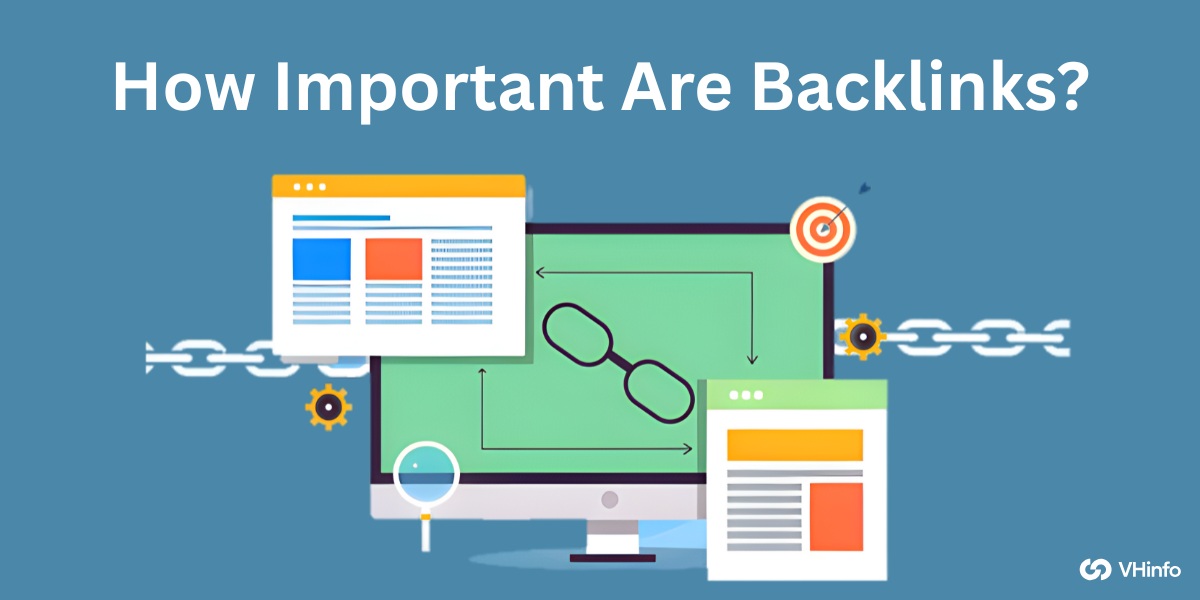In the ever-evolving world of search engine optimization (SEO), achieving high search engine rankings and driving website traffic in a highly competitive niche can feel like an uphill battle. For SaaS companies, establishing a strong online presence is vital for success.
VH-info understands the unique challenges you face. This blog post provides actionable insights and right strategies to help your SaaS brand not only compete but thrive in competitive niches.
We’ll break down complex SEO tactics into clear, relatable advice, ensuring you can drive organic traffic and boost brand awareness.
What Defines A Competitive Niche?

A competitive niche is characterized by several factors that make ranking in search engine results pages (SERPs) particularly challenging.
Let’s examine the key elements:
- Established Players: A niche market often becomes competitive when it’s dominated by industry leaders with strong domain authority and well-established SEO strategies. These companies have likely invested heavily in content marketing, building relationships, and quality backlinks over time, making it harder for newcomers to gain traction. Using strategies like niche edits can help build a strong backlink profile effectively.
- High Keyword Difficulty: Keyword difficulty is a metric used to assess how hard it is to rank for a particular keyword. In competitive niches, relevant keywords typically have high keyword difficulty scores, indicating that many authoritative sites are already vying for those top spots in search results.
- High Search Volume: While high search volume might seem positive, it also signals intense competition. A large search volume means many businesses are targeting the same relevant keywords, leading to increased competition for search engine rankings.
What Makes A Niche Competitive?

Several SEO factors contribute to the competitiveness of a niche.
To effectively compete, it’s essential to conduct thorough market research and understand these factors:
Understanding Market Signals
Market signals provide insights into the competitive landscape. The difficulty of ranking for specific keywords on Google Search can be gauged using metrics like Keyword Difficulty (KD) score.
This score considers factors such as the domain authority of top-ranking websites, the quality of their website content, monthly search volume, and user intent. Monitoring SEO trends and understanding search queries also helps in assessing the competition. You can also check your page position in Google to evaluate your performance and make necessary adjustments.
Gauging The Level Of Competition
To gauge the level of competition, perform a competitive analysis.
Use tools like Google Keyword Planner, Ahrefs, or SEMrush to identify who your main competitors are. Analyze their SEO strategies, including the keywords they target, the types of backlinks they have, and their social media presence.
Importance Of SEO In A Competitive Niche

SEO is super important if you want your website to show up when people Google something in a competitive niche!
If your website has good search engine optimization, it’s like telling Google, “Hey, my website has what people are searching for!” This helps more people find your site when they use a search engine.
- More Eyes On Your Site: Good SEO helps your website get seen by more people in search results.
- Beat the Crowd: If lots of websites are trying to be the best in competitive niches, SEO helps you stand out.
- Make People Happy: SEO makes sure your website is easy for people to use, so they have a good user experience and want to come back.
- Use the Right Words: Doing keyword research helps you use the same words people type into Google, so they find your website.
- Get Noticed On Social Media: Sharing your website on social media can also help more people find it.
- Build Strong Links: Getting quality backlinks from other good websites tells Google your website is awesome.
How To Rank In A Competitive Niche?

Here’s how to get your website to show up higher on Google, even if lots of other websites are trying to do the same thing in competitive niches. Imagine it like this:
- Step 1: Be a Detective (Thorough Niche Research) – Use a keyword research tool and act like a detective and find out what words people use when they search on Google. Understanding what other websites are doing is competitive analysis, and doing this is the first step to using those keywords to help people find your website when they search for those words. Find the ones that aren’t too hard to rank for, so you have a better chance of showing up near the top!
- Step 2: Make Awesome Stuff (Create High-Quality, Valuable Content) – Think about what people want to know and then make it! Your website content should be fun, helpful, and easy to understand. If people like your website, Google will notice and show it to more people. Make sure the needs of your audience are met!
- Step 3: Make Your Website Look Great (Optimize On-Page SEO) – Make sure your website looks good to Google. Use those keywords you found in your title tags, meta descriptions, and headings. It’s like putting signs on your website so Google knows what each page is about.
- Step 4: Get Popular (Build a Robust Backlink Profile) – Imagine your website needs friends and gets quality backlinks! When other good websites engage in link building by linking to yours, it’s like they’re saying, “This website is cool!” That will make Google like your website more too. A strong backlink profile is key.
- Step 5: Tell Everyone! (Use Social Media and Content Promotion) – Use social media platforms to tell everyone about your website. If people like your website on Facebook, Instagram, or X, formerly known as Twitter, even more people will find it! Share your blog posts and articles.
- Step 6: Keep Watching and Fixing (Monitor and Adjust Your Strategies) – Check to see if your website is getting more visitors and if people are liking it. If not, change things up! SEO is something you always have to keep working on. Check Google Analytics to find the relevant keywords that are helping people find your website.
What Not To Do To Rank In A Competitive Niche?

Here are some things you should NEVER do if you want your website to show up higher on Google in competitive niches:
- Keyword Stuffing: Imagine you really like pizza, but you only talk about pizza all the time. It would be annoying, right? Keyword stuffing is like that for websites. It’s when you use the same keywords over and over again, even if it doesn’t make sense. Google doesn’t like it because it makes the website hard to read and it lowers user experience. Instead, use the keywords naturally and focus on making your website easy to understand.
- Buying Links: Think of links as votes for your website. If you buy links from other websites, it’s like cheating in an election. Google knows when you buy links, and they’ll punish your website by making it show up lower in search results. It’s better to earn quality backlinks by making great content that other websites want to link to. These authoritative sites are more trustworthy.
- Forgetting About User Experience: Imagine going to a store that’s messy and hard to find what you’re looking for. You’d probably leave, right? It’s the same with websites! User experience (UX) is super important. If your website is hard to use, people will leave quickly. Google notices this and will make your website show up lower in search results. Make sure your website is easy to navigate, loads quickly, and looks good on phones and computers. If people enjoy using your website, Google will think it’s great too.
Strategies For Ranking In A Competitive Niche

Here are some strategies to help your website rank higher in a competitive niche:
- Quality Content Creation: Imagine you’re making a super cool book or blog post. It needs to be interesting, helpful, and easy to understand. That’s quality content! When you create awesome stuff that people love to read and share, Google notices and thinks your website is great. This helps you get more visitors, boosts organic traffic, and improves your search engine rankings. Make sure your website content meets the needs of your audience.
- Building High-Quality Backlinks: Think of backlinks like votes for your website. But not all votes are the same! Getting links from good, trustworthy websites is like getting a vote from the smartest person in school. These are quality backlinks and they tell Google that your website is also trustworthy and has good information. This can make a strong backlink profile and help you rank higher in search results.
- Utilizing Social Media and Influencers: Social media platforms are like big playgrounds where lots of people hang out. If you share your website and blog post on social media, more people will see it! You can also ask popular people (influencers) to share your website with their friends. This can drive traffic to your website and help more people discover your awesome content. It increases brand awareness.
- Targeting Long-Tail Keywords: Instead of trying to rank for just one or two really popular keywords, think of long-tail keywords. These are longer phrases that people search for when they’re looking for something very specific. For example, instead of “shoes,” someone might search for “comfortable running shoes for women with flat feet.” It’s like finding a hidden treasure because fewer websites are trying to rank for those specific phrases, so you have a better chance of showing up at the top! You’ll attract users with specific search queries.
Tips To Rank In A Competitive Niche

Here are some tips to help your website rank higher when you’re competing with lots of other websites in a competitive niche:
- Understand The Competitive Landscape: Before you start, look around! Check out what other websites in your niche are doing. What keywords are they using? What kind of content do they have? This competitive analysis will help you figure out how to make your website even better and identify content gaps to find ways to stand out from the crowd.
- Produce Better Content Than Competitors: Don’t just copy what everyone else is doing! Make your website content the BEST it can be. Make it more interesting, more helpful, and easier to understand than your competitors’ website content. If people love your website, Google will notice and show it to more people.
- Focus On High Quality Backlinks: Think of backlinks like votes from other websites. But it’s better to get votes from really smart and popular websites than from websites no one has ever heard of. Focus on getting quality backlinks from authoritative sites that are related to your niche. This tells Google your website is trustworthy and has good information.
- Targeting A Broad Spectrum Of Keyword Types: Use all sorts of keywords! Short ones (like “shoes“), long ones (like “comfortable shoes for running“), and question keywords. If you target a broad spectrum of keyword types, you’ll attract more people who are looking for different things and it can boost organic traffic. Make sure the relevant keywords match what you’re offering.
- Perfect Your Site’s Technical SEO: Make sure your website is easy for Google to understand. That means making sure it loads quickly, works well on phones, and is organized in a way that makes sense. This is technical SEO. If Google can easily crawl and index your website, it will be more likely to show it to people in search results. Page load speed is important.
- Use Social Media As A Trust Factor: Use social media to show people that your website is cool and trustworthy. When people like and share your posts, it sends a signal to Google that your website is popular.
FAQ’s:
Can I Compete With Established Brands In My Niche?
Yes, you can! It’s like a little kid playing basketball with grown-ups – it might be harder, but you can still score! Focus on finding things they don’t do well and doing them better. It’s thorough market research. Use different relevant keywords, build better links, and make your website super easy to use. This can help you stand out, even against big companies, and improve your search engine rankings.
Can A Small Niche Rank Well In SEO?
Absolutely! A small niche is like a hidden treasure. If you make really good content that helps people and use the right search queries, your website can show up high in Google, even if not many people are searching for it. Additionally, targeting long-tail keywords with less competition is key.
What Are The Most Critical SEO Techniques For A Competitive Niche?
The most important things are using the right keywords (keyword research), making awesome content that people love (valuable content) aligned with user search intent, getting other good websites to link to yours (quality backlinks), and making sure your website is easy for Google to understand (technical SEO). These SEO strategies are a powerful tool!
How Often Should I Audit My SEO Strategy In A Competitive Market?
In a competitive market, things change fast! You should check your SEO strategy at least every three months to ensure it meets the needs of your target audience. This will help you stay up-to-date with what’s working and what’s not, so you can make changes and keep your website ranking high. Monitor SEO trends.
Conclusion
So, getting your website to rank high in a competitive niche is like running a race – it takes time, effort, and a good plan.
You need to do your homework with keyword research, create awesome content that people love, build strong links from other trustworthy websites, and ensure your website is easy for everyone to use.
Use social media to spread the word and don’t forget to keep checking and tweaking your SEO strategies to stay ahead.
If you follow these tips, you can boost your search engine rankings, get more people to visit your website, and achieve lasting SEO success, even when you’re up against tough competition and improve brand awareness.
Always focus on creating valuable content that meets the needs of your audience.



